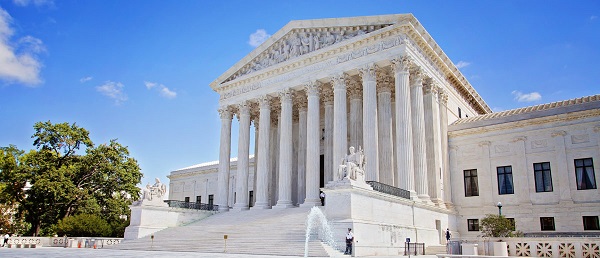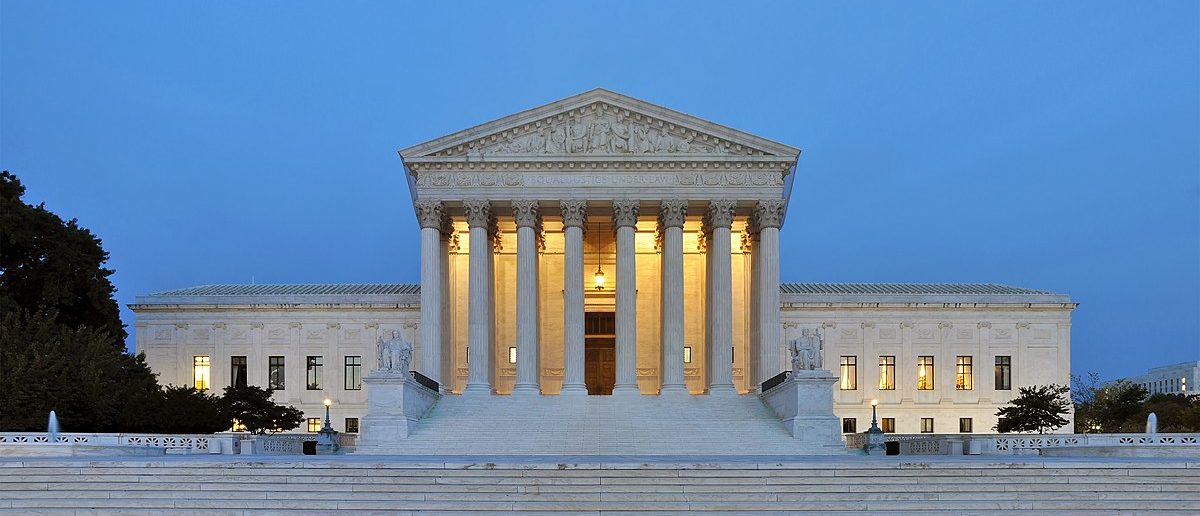Daily Caller
Former President Jimmy Carter Dies At Age 100

Then Gov. Jimmy Carter addresses the 1976 Democratic National Convention at Madison Square Garden in New York City. (Screen Capture/CSPAN)

From the Daily Caller News Foundation
By Ryan Meilstrup
Former President Jimmy Carter died on Sunday at age 100 after over a year in hospice care in Plains, Georgia, his son announced according to multiple outlets.
Prior to his passing, Carter was subjected to several brief hospital visits over the past few years and chose to forgo additional medical attention in February 2023.
The former president had previously suffered from several health complications, including cancer, various falls and a brain bleed. Jason Carter told CNN on May 14 that his grandfather’s time was “coming to the end,” and another grandson, Josh, told People in mid-August 2023 that “we’re in the final chapter.”
The Carter Center also announced in May 2023 that Rosalynn Carter, a staunch advocate of mental health, was diagnosed with dementia, and later entered into hospice care in mid-November. The 96-year-old former first lady passed away days later at their home in Georgia.
Carter was the 39th president of the U.S., was elected in 1976 and served the country for one term until 1981. He also served as Georgia’s 76th governor from 1971 to 1975 as a member of the Democratic Party.
The Carter administration’s accomplishments included the Panama Canal treaties, the improving of U.S. relations with China, as well as programs and initiatives under the new Departments of Energy and Education. He established The Carter Center after his presidency, a humanitarian nongovernmental organization.
Carter’s presidency faced several major challenges, like the Iran hostage crisis, decreased energy production and inflation, according to Reuters. He lost overwhelmingly lost his reelection bid to Ronald Reagan in 1980.
Following his presidency, Carter was involved in numerous philanthropic and public service efforts. He engaged in “conflict mediation” in numerous countries worldwide and led efforts to eradicate Guinea worm disease, according to The Carter Center. Carter and his wife volunteered annually for Habitat for Humanity, and Carter taught Sunday School at Maranatha Baptist Church of Plains.
In 2002, Carter received the Nobel Peace Prize “for his decades of untiring effort to find peaceful solutions to international conflicts, to advance democracy and human rights, and to promote economic and social development.”
Carter was the longest living president in history, and he and his wife held the record for the longest first-couple marriage. He was born in Plains, Georgia, on Oct. 1, 1924, attended Georgia Tech and served in the U.S. Navy as a submariner.
Mary Lou Masters contributed to this report
Automotive
Supreme Court Delivers Blow To California EV Mandates


From the Daily Caller News Foundation
“The Supreme Court put to rest any question about whether fuel manufacturers have a right to challenge unlawful electric vehicle mandates”
The Supreme Court sided Friday with oil companies seeking to challenge California’s electric vehicle regulations.
In a 7-2 ruling, the court allowed energy producers to continue their lawsuit challenging the Environmental Protection Agency’s decision to approve California regulations that require manufacturing more electric vehicles.
“The government generally may not target a business or industry through stringent and allegedly unlawful regulation, and then evade the resulting lawsuits by claiming that the targets of its regulation should be locked out of court as unaffected bystanders,” Justice Brett Kavanaugh wrote in the majority opinion. “In light of this Court’s precedents and the evidence before the Court of Appeals, the fuel producers established Article III standing to challenge EPA’s approval of the California regulations.”
Kavanaugh noted that “EPA has repeatedly altered its legal position on whether the Clean Air Act authorizes California regulations targeting greenhouse-gas emissions from new motor vehicles” between Presidential administrations.
“This case involves California’s 2012 request for EPA approval of new California regulations,” he wrote. “As relevant here, those regulations generally require automakers (i) to limit average greenhouse-gas emissions across their fleets of new motor vehicles sold in the State and (ii) to manufacture a certain percentage of electric vehicles as part of their vehicle fleets.”
The D.C. Circuit Court of Appeals previously rejected the challenge, finding the producers lacked standing to sue.
“The Supreme Court put to rest any question about whether fuel manufacturers have a right to challenge unlawful electric vehicle mandates,” American Fuel & Petrochemical Manufacturers (AFPM) President and CEO Chet Thompson said in a statement.
“California’s EV mandates are unlawful and bad for our country,” he said. “Congress did not give California special authority to regulate greenhouse gases, mandate electric vehicles or ban new gas car sales—all of which the state has attempted to do through its intentional misreading of statute.”
Daily Caller
Unanimous Supreme Court Ruling Inspires Hope For Future Energy Project Permitting


From the Daily Caller News Foundation
It comes as a surprise to many Americans when they learn that the vast majority of decisions issued by the U.S. Supreme Court are decided unanimously. Far too often, these unanimous decisions receive scant attention in the press due to their lack of controversy.
Such is the case with a key 8-0 decision the Court published May 29 that could help Congress and the Trump administration meet their goals to streamline permitting for energy projects in the United States. The decision narrows the scope of application of the National Environmental Policy Act (NEPA), a law whose environmental review provisions have been systematically used – and often abused – by climate alarm groups and plaintiff lawyers for decades to impede the progress of major projects of all kinds.
The case at hand involves the Uinta Basin Railway Project, which will transport oil produced in Utah’s Unita Basin and connect it to the national railway network so it can reach national markets. Because the rail line would parallel the Colorado River for roughly 100 miles, the D.C. Court of Appeals ruled in 2023 that the project’s developers would have to conduct a second, expanded environmental impact study under NEPA to try to assess nebulous potential impacts to air quality – often taking place thousands of miles away – or from a possible oil spill, rescinding a key permit that had been issued in 2021 by federal regulators.
Dear Readers:
As a nonprofit, we are dependent on the generosity of our readers.
Please consider making a small donation of any amount here.
Thank you!
It is key to note that that permit was issued by the federal Surface Transportation Board (STB) along with a 3,600-page environmental impact statement to comply with NEPA. In the conduct of the environmental review, the Wall Street Journal wrote that STB and the company assessed “the railway’s potential effects on local water resources, air quality, protected species, recreation, local economies, the Ute Indian tribe and much more.”
But for the plaintiffs and the D.C. Circuit Court, 3,600 pages of thorough scientific analysis just weren’t enough. They filed suit, complaining that the study didn’t try to assess potential impacts that might happen on dozens of other rail lines hundreds of miles distant, or, even more absurd, assess potential pollution in “environmental justice communities” as far away as the Texas and Louisiana Gulf Coast.
You really can’t make this stuff up.
If delay was the goal, the plaintiffs got a win, halting progress for four years. That is a sadly typical outcome for cases involving energy-related projects such as this one.
In their unanimous opinion written by Justice Brett Kavanaugh, the justices state, “The goal of the law is to inform agency decisionmaking, not to paralyze it.”
As I’ve written in previous stories, the vast majority of delays in permitting processes stem from provisions contained in major federal statutes designed to protect the environment and endangered species. In addition to NEPA, these laws include the Clean Air Act, the Clean Water Act and the Endangered Species Act. Among them all, none has been more broadly abused and misinterpreted by activist courts than NEPA.
In its analysis of the decision, the Institute for Energy Research says, in part, that the “decision means that agencies can approve projects like pipelines, railways, and dams and not be mandated to consider distant environmental effects of the projects, such as increased greenhouse gas emissions, that had stopped or delayed fossil fuel projects from moving forward, particularly during the Biden administration.” But, the author cautions, “the Uinta Basin Railway project could still face additional legal and regulatory hurdles within Colorado,” despite the ruling.
The good news is that even the liberal justices on the Supreme Court appear to be developing a growing awareness of just how absurd some of the claims made in lawsuits like this case really are. The unanimous nature of this decision inspires some sense of hope that the Trump administration can succeed in some of its efforts to reform the system and put an end to some of the most unjustified delays.
David Blackmon is an energy writer and consultant based in Texas. He spent 40 years in the oil and gas business, where he specialized in public policy and communications.
-

 espionage1 day ago
espionage1 day agoFrom Sidewinder to P.E.I.: Are Canada’s Political Elites Benefiting from Beijing’s Real Estate Reach?
-

 Business2 days ago
Business2 days agoCanada’s critical minerals are key to negotiating with Trump
-

 Business2 days ago
Business2 days agoRFK Jr. planning new restrictions on drug advertising: report
-

 Alberta1 day ago
Alberta1 day agoAlberta’s carbon diet – how to lose megatonnes in just three short decades
-

 Energy1 day ago
Energy1 day agoWho put the energy illiterate in charge?
-

 espionage1 day ago
espionage1 day agoFBI Buried ‘Warning’ Intel on CCP Plot to Elect Biden Using TikTok, Fake IDs, CCP Sympathizers and PRC Students—Grassley Probes Withdrawal
-

 Alberta2 days ago
Alberta2 days agoUnified message for Ottawa: Premier Danielle Smith and Premier Scott Moe call for change to federal policies
-

 David Clinton24 hours ago
David Clinton24 hours agoWhy Are Ontario’s Public Schools So Violent?






